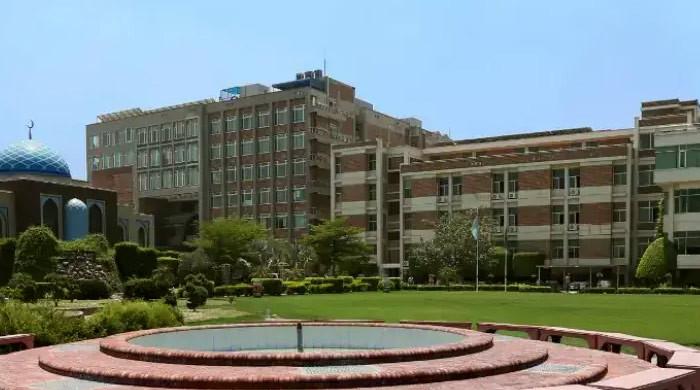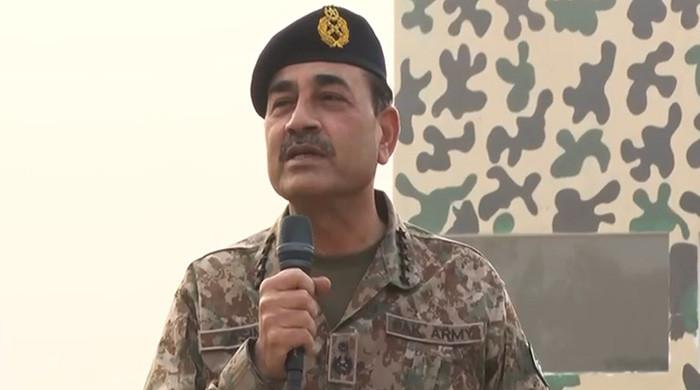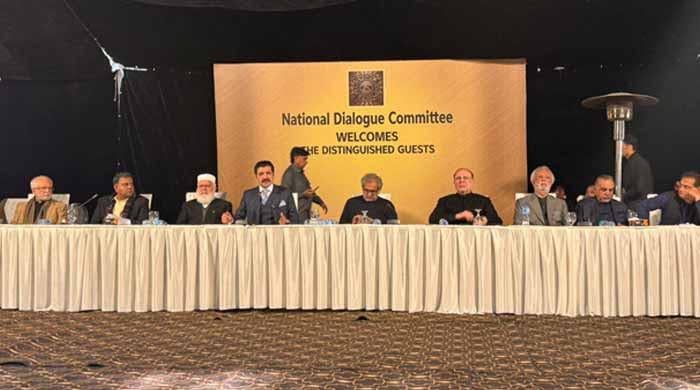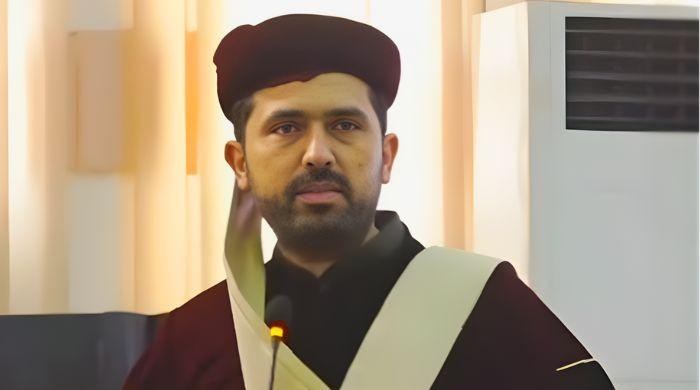'Broader, consistent pattern of aggression': Pakistan assails Israel on Qatar strikes at UN
Ambassador Asim Iftikhar decries weak response, UNSC inaction against Israel's actions undermining peace, stability
September 12, 2025
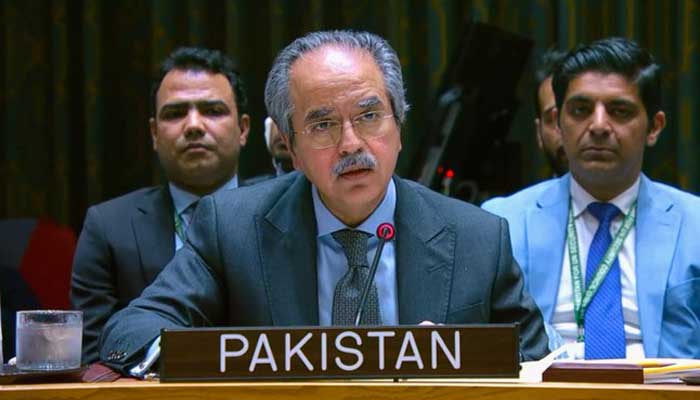
- Israeli attack violates UN Charter: Asim Iftikhar
- Says Israeli strike undermines Middle East stability.
- Adds Israel's attack could imperil regional peace.
Pakistan's Permanent Representative to the United Nations, Asim Iftikhar, on Friday assailed Israel's strike on Qatar, terming it a violation of international law and the UN Charter.
Speaking at the United Nations Security Council's (UNSC) emergency meeting on the Middle East, Iftikhar said the attack was not only an assault on a sovereign country but also a blow to international peace and security.
"This reckless and provocative attack constitutes a flagrant violation of the sovereignty and territorial integrity of Qatar, contrary to the fundamental principles of international law, including the UN Charter,” the envoy remarked.
Ambassador Iftikhar further added: "At a time when delicate negotiations on the Gaza peace deal were progressing towards a possible breakthrough, striking the territory of a principal mediator and those directly involved in negotiations is a deliberate attempt to sabotage diplomacy, derail peace efforts, and prolong the suffering of civilians".
The UNSC condemned the strikes on Qatar's capital Doha but did not explicitly name Israel in its statement, which was supported by all 15 members, including the United States.
In his UNSC address, Iftikhar reaffirmed Pakistan’s support for Qatar’s mediation role in the Middle East and reiterated Islamabad’s backing of a two-state solution. He said Israel's aggression undermined both regional stability and prospects for a just and lasting peace.
"This brazen and illegal assault is not an isolated incident, rather it is part of a broader and consistent pattern of aggression and violation of international law by Israel.
"Pakistan stands shoulder to shoulder with Qatar," he added, warning that violations of international law and peace must not be ignored.
"It is evident, that Israel, the occupying power is bent on doing everything to undermine and blowup every possibility of peace. Clearly, Israel’s destructive policies are incompatible with the international community’s quest for peace and stability. Sadly, it has been emboldened by the weak response, and inaction by this Council," the diplomat lamented.
While speaking on the water dispute, Iftikhar also raised concerns over the Indus Waters Treaty (IWT), emphasising that water should never be used as a weapon. He underlined that the treaty, in place for more than six decades, remained Pakistan’s lifeline and could not be suspended unilaterally by any party.
The UN envoy stated that despite political tensions, the IWT had endured as a framework for cooperation on shared resources.
However, he warned that India’s suspension of regular water-flow data sharing had raised concerns that New Delhi could either block water to Pakistan or trigger flooding by releasing large volumes at once.
At a time when devastating floods have again hit Pakistan, the envoy stressed that cooperation over water management was not a choice but a necessity.




